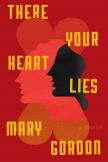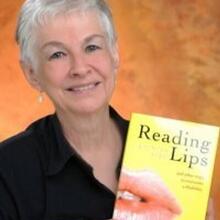A Suicide and Other Deaths
It is 1936 and Marian, a freshman at Vassar, finds her brother, Johnny, hanging from a rope in the apartment that he shares with his lover. The occasion further disrupts Marian’s relationship with the Roman Catholic Church and becomes the defining moment of Marian’s life—and of this novel.
There Your Heart Lies follows Marian’s attempts to come to grips with the loss of her brother. She blames her father, her siblings, society and the Catholic Church, whose rigidity, she believes, influenced her father to try to “cure” Johnny of his homosexuality and thereby “save his soul.”
Marian, the youngest of nine children, was raised by conservative Catholic parents. In her teenage years, she rebelled against her parents and turned against Catholic clergy and the church. She had few dealings with priests but saw them as spoiled, harsh and not very bright. She detested her parents’ sycophantic attitude toward the clergy.
When she witnesses the horror of her brother’s suicide, she decides to flee not just to another country but also to another life where she can sever her ties with her church. Yet as this novel’s title suggests, one cannot escape from one’s own upbringing. As Gordon insightfully puts it, “echoes from a lost faith willfully and violently bob up, float up unbidden, unwelcome, the flotsam and jetsam of a vanished way of life.”
Those echoes—suggestive of Francis Thompson’s poem “The Hound of Heaven”—give the story a powerful resonance as Gordon’s three-part story moves nimbly from Marian’s youth to her old age and to her relationship with Amelia, her granddaughter.
Gordon tells Marian’s story using shifting points of view and shifting times and settings. The action veers back and forth from 1936 to 2009. Part of the charm lies in the story’s pace, which carries the plot along until small details suddenly take on significance. Gordon makes deft use of present tense and slips easily in and out of Marian’s—and later Amelia’s—thoughts. As Gordon weaves the stories together, the plot takes on a Rashomon-like effect and readers see the same incident from several perspectives.
As Gordon weaves the stories together, the plot takes on a Rashomon-like effect and readers see the same incident from several perspectives.
The action starts with 19-year-old Marian ready to board a ship and travel to Spain. As we gradually learn, she is married to Russell, her brother’s lover. In short order, we also learn that the marriage is a sham. Marian comes from a wealthy, conservative Roman Catholic family from New York, while Russell comes from a poor, Jewish family. The two have taken on the Communist cause in the Spanish Civil War. Russell, who is a physician, works in a hospital at the front and Marian volunteers as a medic.
Living in Spain for about 14 years, Marian falls in love, marries again, loses her second husband to sepsis but has his son, and then marries a third time. Before her last marriage, she is forced to live with her domineering mother-in-law, who disdains Marian for her Communist sympathies and drugs her in order to possess her grandson, whom she sees as the replacement for the son she lost. Eventually, Marian is helped to escape by Father Tomás. Some 70 years later, Marian, an atheist, is still angry toward the Catholic Church and explains her anger to Amelia, her 20-something granddaughter who, like her father and Marian’s son, was raised as an atheist.
Amelia tries to process her grandmother’s life story but is unable to because she lacks a religious background. When Amelia hears about Father Tomás and the Eucharist, for example (something essential to Marian’s story), Amelia cannot understand its significance, a fact that Marian finds frustrating.
As the story shifts back to Spain, Marian’s disenchantment with Catholicism increases. It infuriates her that Catholics treat the clergy not just with respect but as if they were gods. Most civilians are destitute, but priests and bishops live in luxury and abuse the poor. They even encourage soldiers to kill Communist protestors.
It infuriates her that Catholics treat the clergy not just with respect but as if they were gods.
Father Tomás is the exception in Gordon’s otherwise depressing take on the church. (Readers may be reminded of Georges Bernanos’s novel, Diary of a Country Priest, which Mary Gordon has praised in interviews.) Although Father Tomás is outraged at the atrocities “the Church he loves” commits in the name of God, he is equally outraged at the Communists’ torture of nuns and priests. Through it all, he stays true to his priestly vocation. He believes in evil but believes that most people are not evil and advises Marian to forgive and to try to understand that people placed “in impossible situations often act impossibly.”
As 92-year-old Marian remembers her time in Spain, she describes Father Tomás as saint-like and a “man of sorrows.” If there is a problem with the novel, it is that Gordon does not devote enough space to Father Tomás, whose complex character and extraordinary resolve are worthy of its own book.
As is often the case with a Mary Gordon story, the Catholic Church plays a significant role in the plot and adds to its surprising twists. In this novel, the church waits like a ghost in the wings ready to enter the storyline and assume the designation of whipping boy. Or, in another guise, a bringer of grace.
This article also appeared in print, under the headline “A Suicide and Other Deaths,” in the June 26, 2017, issue.










